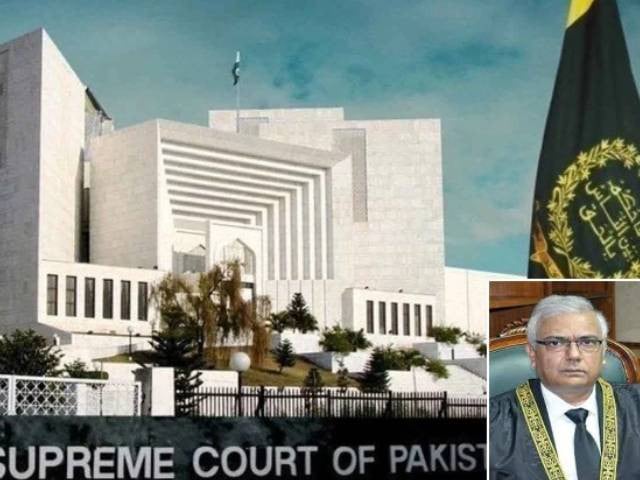The establishment of constitutional benches in the SC was facilitated by an amendment to Article 191-A, which specifies that such benches may consist of an equal number of judges from each province

By our correspondent
ISLAMABAD: On Tuesday, the Judicial Commission of Pakistan (JCP) appointed Justice Amin-ud-Din Khan to lead a newly constituted constitutional bench in the Supreme Court. The decision came during a JCP meeting chaired by Chief Justice Yahya Afridi, which concluded with a narrow 7-5 vote in favor of forming the bench. This bench, set to operate for a duration of 60 days, is tasked with addressing constitutional matters at the highest judicial level.
The bench will be composed of Justices Ayesha Malik, Naeem Akhtar Afghan, Athar Minallah, Hassan Azhar Rizvi, Musarrat Hilali, and Jamal Khan Mandokhail, alongside Justice Khan. Notably, Justice Ayesha Malik will represent Punjab, while Justices Afghan and Mandokhail will represent Balochistan, ensuring regional representation within the bench.
The meeting was attended by a range of notable figures, including senior puisne judge Justice Shah, as well as members of parliament such as Senator Farooq H. Naek, MNA Sheikh Aftab Ahmad, and MNA Omar Ayub. Other attendees included Law Minister Azam Nazeer Tarar, Senator Shibli Faraz, Attorney General for Pakistan Mansoor Usman Awan, and Pakistan Bar Council representative Akhtar Hussain.
The establishment of constitutional benches in the Supreme Court was facilitated by an amendment to Article 191-A, which specifies that such benches may consist of an equal number of judges from each province. These benches are authorized to hear cases concerning the original, appellate, and advisory jurisdictions of the Supreme Court.
The JCP, now comprising 13 members as outlined in the 26th Constitutional Amendment, plays a pivotal role in appointing judges to the Supreme Court, high courts, and the Federal Shariat Court (FSC). The controversial amendment, which passed through parliament on October 21, significantly altered the selection process for the Chief Justice of Pakistan and laid the groundwork for the creation of constitutional benches.
This recent development signals a critical evolution in Pakistan’s judicial framework, aiming to enhance the functionality and representation within the Supreme Court, while also responding to ongoing calls for reform in the judicial appointment process. As the new constitutional bench prepares to convene, its impact on the interpretation of constitutional law in Pakistan will be closely observed.



